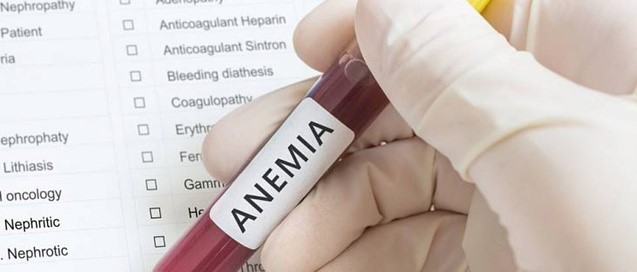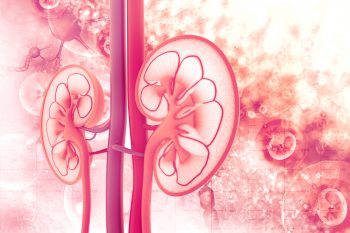
Patients with chronic kidney disease (CKD) who develop metabolic acidosis are at risk for accelerated decline in estimated glomerular filtration rate (eGFR), augmented muscle catabolism, and increased mortality. Veverimer is an oral, non-absorbed, counterion-free, polymeric drug candidate; the drug selectively binds and removes hydrochloric acid from the gastrointestinal lumen.
During a poster session at Kidney Week 2019, Donald E. Wesson, MD, MBA, FACP, FASN, and colleagues reported results of a multicenter, blinded, placebo-controlled, 40-week extension (n=196) of a 12-week parent study (n=217) of veverimer. The poster was titled Randomized Controlled Trial of Long-Term Safety and Efficacy of Veverimer for Treatment of Metabolic Acidosis. Patients with CKD and metabolic acidosis were randomly assigned in a 4:3 ratio to veverimer or placebo. CKD was defined as eGFR 20 to 40 mL/min/1.73 m2 and metabolic acidosis was defined as serum bicarbonate level 12 to 20 mEq/L.
The primary end point of the extension study was safety; secondary end points included effect on bicarbonate level, and patient-reported physical function. Physical function was measured using Kidney Disease and Quality of Life Physical Functioning Domain (KDQOL-PFD) and objectively measured physical function using the repeated chair stand (RCS) test. The researchers also performed a pre-specified time-to-event analysis for the composite outcome of death, renal replacement therapy, or decline in eGFR ≥50%.
Premature treatment discontinuation was less common among patients in the veverimer group compared with those in the placebo group (2.6% vs 9.8%); serious adverse events were also less common in the veverimer group (1.8% vs 4.9%). No patients in the vererimer group died versus two in the placebo group. No patients in the veverimer group discontinued due to an adverse event compared with one in the placebo group; the frequencies of adverse events were similar between the groups.
At week 52, more patients in the veverimer group had an increase in bicarbonate (>4 mEq/L or normalization) compared with patients in the placebo group (62.7% vs 37.8%; P=.001). Higher bicarbonate levels were seen in the veverimer group at all time points (P<.001).
Patients in the veverimer group improved on the KDQOL-PFD score versus patients on placebo; mean placebo-subtracted change at the end of treatment was 12.1 points (P<.001). Specifically, veverimer improved the ability to climb one flight of stairs (P<.001) and all measures of walking (P<.01) on the KDQOL-PFD. In the veverimer group, the time to perform the RCS test decreased by 4.3 seconds versus 1.4 seconds in the placebo group.
There was an association between veverimer and longer time to the kidney composite end point (annualized incidence rate 4.2% [veverimer] vs 12.0% [placebo]; P=.022).
In conclusion, the researchers said, “Veverimer safely and effectively improved metabolic acidosis in patients with CKD. Our multicenter, randomized, controlled trial adds to the evidence that treating metabolic acidosis slows progression of CKD and improves physical function.”
Source: Wesson DE, Mathur VS, Tangri N, et al. Randomized controlled trial of long-term safety and efficacy of veverimer for treatment of metabolic acidosis. Abstract of a poster presented at the American Society of Nephrology Kidney Week 2019 (Abstract TH-PO448), November 7, 2019, Washington, DC.






 © 2025 Mashup Media, LLC, a Formedics Property. All Rights Reserved.
© 2025 Mashup Media, LLC, a Formedics Property. All Rights Reserved.